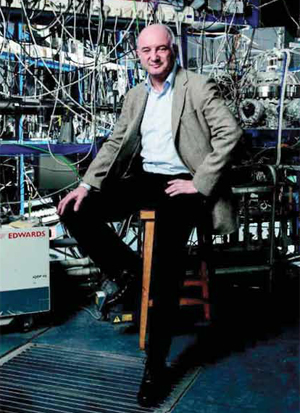
In his book “The World is Flat,” Thomas L. Friedman uses the rather lovely term “Passion Quotient.” We, at the Weizmann Institute, place just as much importance – if not more – on the scientists’ passion for a subject as on their intelligence or expertise.
How does one nurture the passion that leads to innovation?
Truly amazing amounts of knowledge are available to us today, which can be used for the development of practical applications, for example, next-generation cell phones. But such “instant gratification,” in which the science is motivated by the end results, will only get you so far in investigating questions in which we can’t even begin to fathom the discoveries and practical implications that could potentially stem from such research.
Just one example of this can be seen at the Weizmann Institute of Science. In the 1980s, Prof. Zelig Eshhar asked a simple question: Why is the body’s immune system so inefficient when it comes to fighting cancer? For over 30 years, Eshhar pursued this question, even when the cancer research community had mostly decided that such research would never lead to a cure. That all changed in 2011, when researchers in Pennsylvania reported that three patients with end-stage leukemia were in remission following treatments based on Eshhar’s research.
Can we educate young people to prepare their minds for this type of innovation – instill in them a high Passion Quotient for scientific research?
We believe we can. At the Weizmann Institute, we first find the best scientists and then ask them what they want to research. Patents and applications are never mentioned.
Then we bring all our scientists together and provide a great environment where they can collaborate. We encourage our scientists to engage in multidisciplinary research across departments and faculties, as well as with researchers around the globe.
Oh yes, and we have a test for that Passion Quotient, as well. We give prospective students an exam, asking them about something we’re sure they have never studied. There are those who tell us they haven’t learned that subject, and then there are those whose curiosity is aroused. The ones who start trying to figure it out are the ones that we want.
These may or may not be the kids who tested high on the IQ tests, or who have learned how to “spit out” the correct answers on tests. That is why we try to reach as many as possible with our education and outreach programs. These programs begin with teacher training – instilling (or re-instilling) the passion in those whom we expect to pass it on – up to programs for high-school drop-outs, as well as numerous popular lectures and events.
Some of those who benefit from our programs will become scientists, a few at the Weizmann Institute of Science. Some will help find drugs for cancer or diabetes. Others will change the way we view the Universe. In our eyes, that is all innovation.
Prof. Daniel Zajfman is the president of the Weizmann Institute of Science
